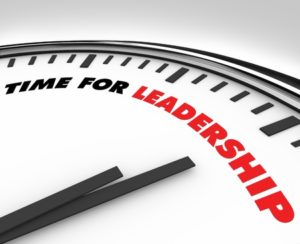Take Twelve for Leaders
Part I
 From People Matters magazine, then again in Critical Thinking, January 2016, there is a look at the competencies of leadership for the future. Almost every article published from the Neuroscience or from business leader publications focus on skills needed by our leaders. We love to have conversations about these ideas in all our seminars. Let’s look and celebrate the insights from this latest list.
From People Matters magazine, then again in Critical Thinking, January 2016, there is a look at the competencies of leadership for the future. Almost every article published from the Neuroscience or from business leader publications focus on skills needed by our leaders. We love to have conversations about these ideas in all our seminars. Let’s look and celebrate the insights from this latest list.
The rate of change has become greater than our ability to respond. The world is described as Volatile, Uncertain, Complex and Ambiguous. Due to the major tectonic shifts, a new mindset of leadership is demanded. Traditional hierarchical structures are fading away to give way to purposeful networks and communities of people working together to achieve a shared purpose. It is reported that to succeed and thrive in the volatile, uncertain, complex and ambiguous world these 12 competencies are required.
- Develop an Adaptive Mindset: Be comfortable with unclear situations and unexplored paths. Giving and receiving early and frequent feedback will enable constant realignment.
- Have a Vision: Vision is a perpetual force, a critical anchor that drives decisions, actions and judgments. Having a compelling vision is a key driver of engaging and retaining high performing team members.
- Embrace Abundance Mindset: Abundance mindset sees possibilities where a constraint mindset sees challenges.
- Weave an Ecosystem for Human Engagement: An ecosystem of human engagement is created when leaders understand the basic driver of human engagement – the need for trust, the need to have hope, the need to feel a sense of work and the need to feel competent. Leaders who coach will clarify the meaning of the work people do and build a positive influence.
- Anticipate and Create Change: As leaders ride the wave of change, they will want to involve people in the process to prioritize and execute. Leaders nurture change by balancing the needs of the context, needs of others and their own needs.
- Self-Awareness: It is only when leaders are aware of their preferences, ways of working and blind spots that they bring their true authentic selves and thus, a significant difference to the team and the organization. (Emotional Intelligence)
- Be an Agile Learner: Leaders have to be constantly curious and carry a “beginners mind” which is also willing to give up familiar approaches. Leaders need meta-cognition and awareness of the bigger picture.
- Network and Collaborate: Leaders must collaborate relentlessly within and outside the organization; a social mindset of communication.
- Relentlessly Focus on the Customer: Customer centricity is and will remain at the heart of effective leadership. Customer centric leaders truly “listen” to their customer voices and build long term relationships.
- Develop People: Leadership in the new world is beyond tags and titles. Leaders must model the behaviors they seek, support people in building their skill set and attitude, create learning forums, design work to tap into potential and most importantly – lead thru influence not authority.
- Design for the Future: Leaders are designers of the future. They do so by building an emotional infrastructure, organizational structures, methods and processes. Leaders must have a compelling purpose shared by all.
- Constantly Clarify and Communicate: Communicating effectively is like a location pointer on a GPS – constantly clarifying the current situation with respect to the changing external demands. Leaders will reiterate and reinforce vision, values, and strategies and the meaning of the work.
The hallmark of this volatile, uncertain, complex and ambiguous world is that there are no silver bullets. The future is here and now. Communication and clarity are the currencies of effective leadership. Leadership today is about shifting our mindset, values and organizations to a better place.
It is rewarding and exciting to hear the leaders in our seminars eager to have and develop these competencies.
Join me in our nugget for some thoughts about TIME.